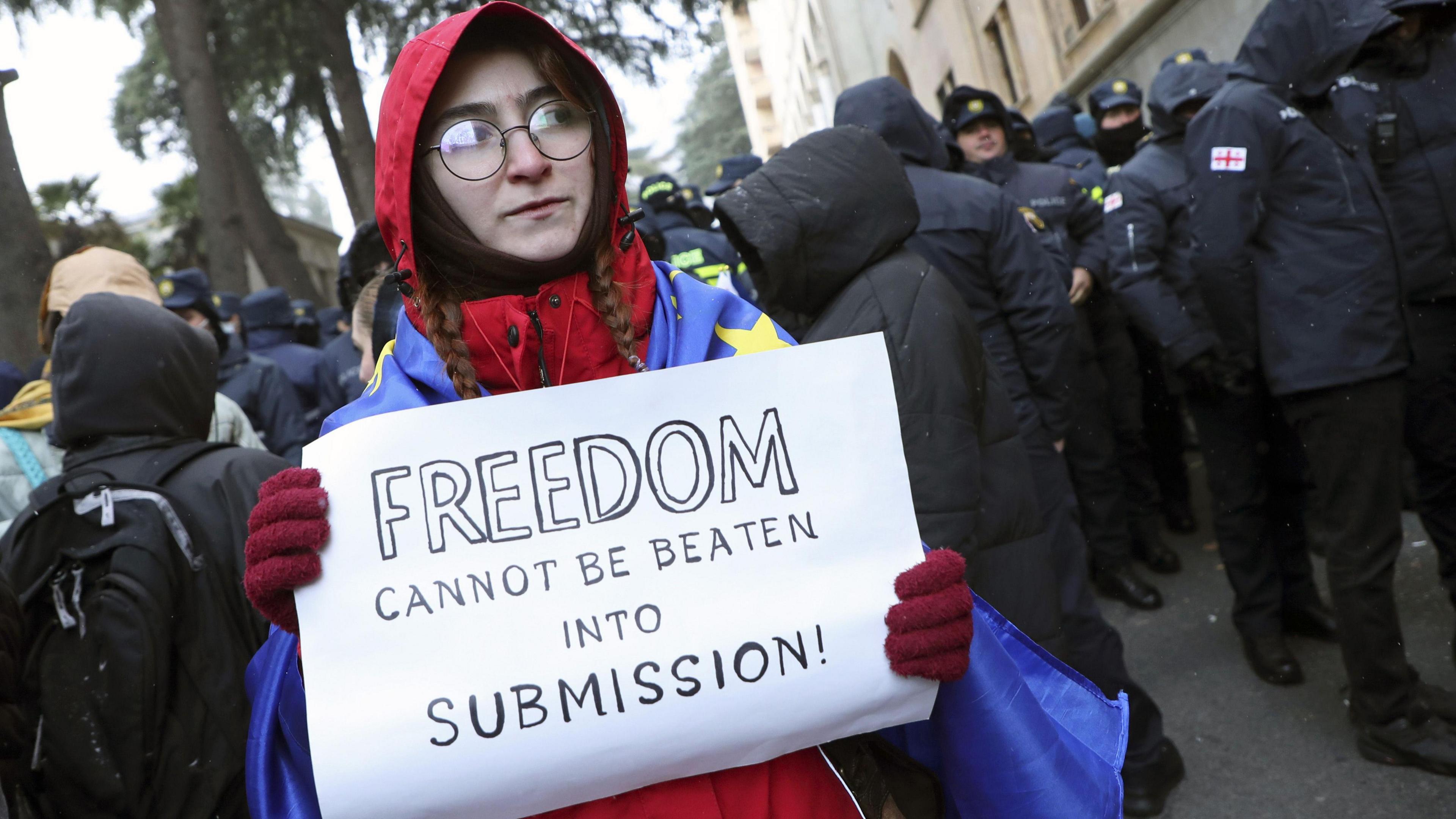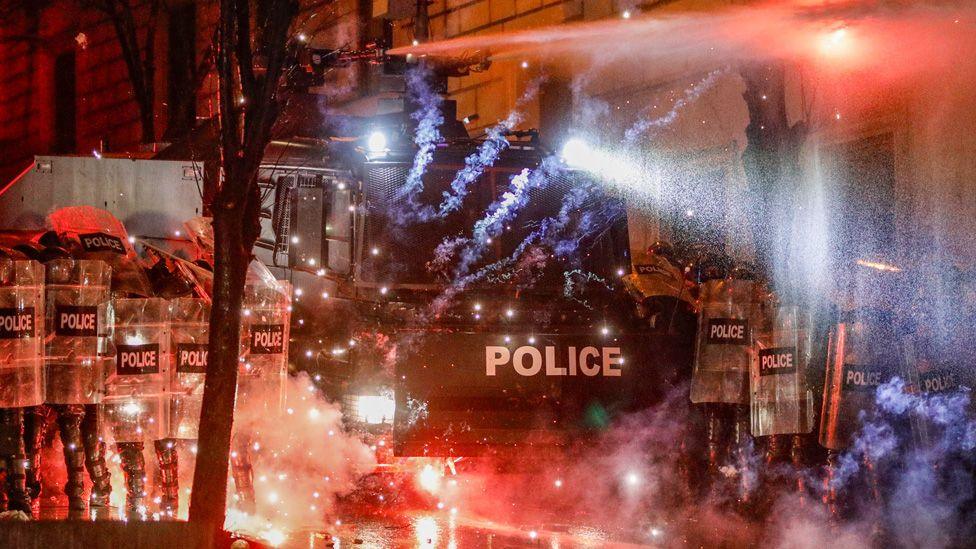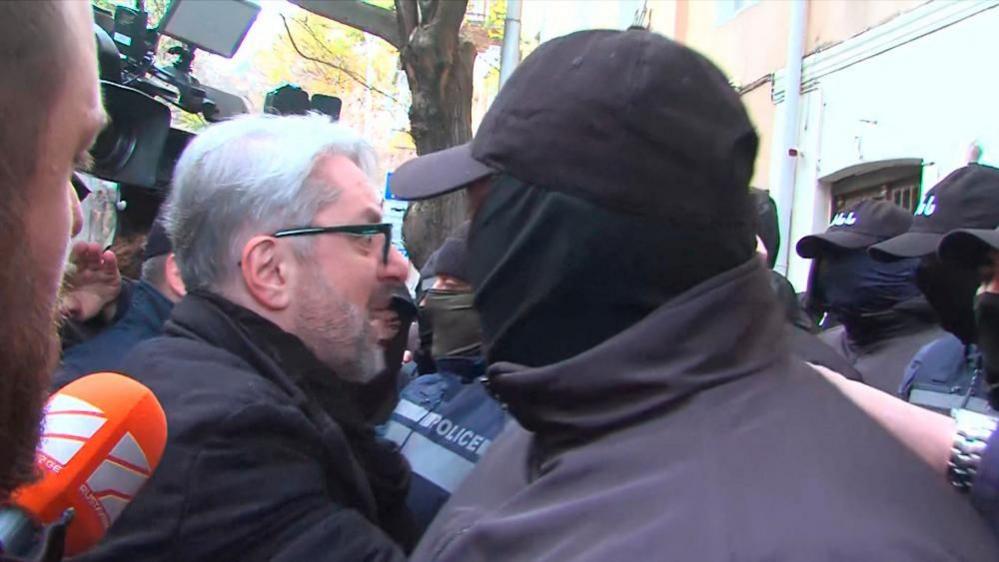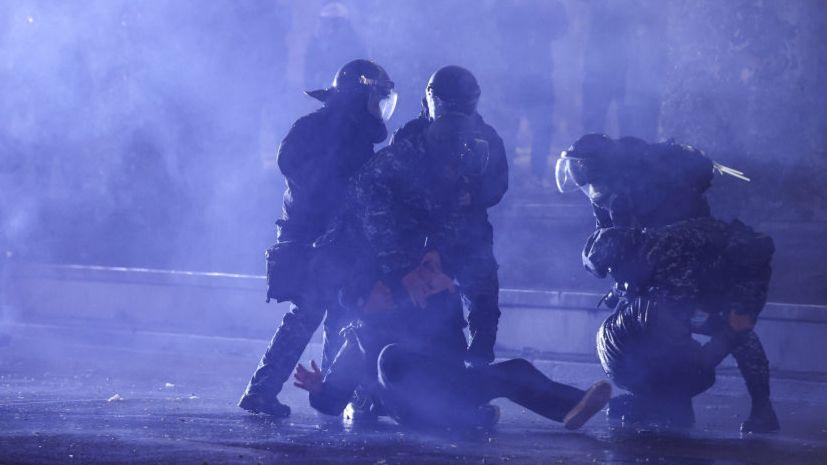UK sanctions Georgian officials over protest crackdown

- Published
The UK has sanctioned five senior Georgian officials, including the interior minister, for their roles in suppressing pro-European protests in the Black Sea country.
The individuals will face travel bans and asset freezes for "violating human rights", the Foreign Office said, adding that the sanctions were imposed in coordination with the US.
Foreign Secretary David Lammy said: "The shocking violence inflicted upon protestors, opposition leaders and journalists is an egregious attack on democracy."
The country has seen months of violent clashes between protesters and police since parliamentary elections held in October, most recently over the government's decision to pause EU accession talks.
The sanctioned individuals are:
Interior Minister Vakhtang Gomelauri
Deputy Interior Minister Aleksandre Darakhvelidze
Tbilisi Police Department Director Sulkhan Tamazashvili
Director of the Interior Ministry's Special Tasks Department Zviad Kharazishvili
Deputy Head of the Special Tasks Department Mileri Lagazauri
The UK has already paused the annual Wardrop Dialogue strategic dialogue and restricted defence cooperation with Georgia.
The announcement comes days after former Manchester City footballer Mikheil Kavelashvili was appointed the country's president.
Kavelashvili is viewed as an ally of the anti-Western ruling party, in contrast to the strongly pro-European incumbent Salome Zourabichvili.
Zourabichvili has pledged not to leave office when her term ends on 29 December, saying her successor was chosen illegitimately.
Moment journalist and cameraman attacked by masked men in Georgia
Protests against Georgian Dream began immediately after parliamentary elections in October elections, but they intensified at the end of November when the government announced it was putting EU accession negotiations on hold until 2028.
Four out of every five voters are said to back joining the EU, a goal inscribed in the constitution.
The main avenue outside parliament has been regularly filled with protesters draped in EU flags, demanding new elections.
Demonstrators using fireworks have been met with a harsh response from police, who have used batons, tear gas, rubber bullets, and water cannons to disperse protesters.
Watch: Fireworks shot at police and water cannon sprayed during Georgia protests
Both the EU and US have condemned the government for democratic backsliding. More than 460 people have been detained across Georgia over the past two weeks, according to Transparency International.
More than 300 have been ill-treated or tortured, the organisation says, including dozens of members of the media. Last weekend, thugs were filmed attacking a TV reporter and cameraman.
Protesters have called on the international community to impose sanctions on top government officials.
Pro-government groups have also waged a campaign of harassment towards civil society activists, beating them outside homes, and carrying out arbitrary arrests.
- Published2 December 2024

- Published4 December 2024

- Published4 December 2024
